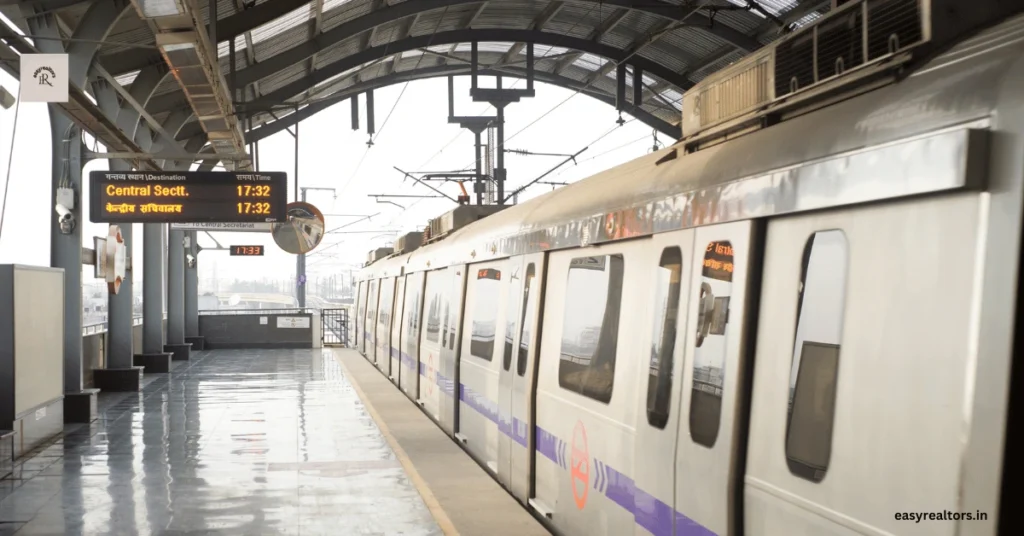Ghaziabad Metro Expansion Set for Revival

After nearly five years of stagnation due to financial concerns, the Ghaziabad Metro Expansion of the Delhi Metro’s Blue Line corridor from Noida Electronic City to Sahibabad is on track for revival. Ghaziabad MP Atul Garg recently announced that a loan from the NCR Planning Board, which can be repaid over 20 years, is being considered to finance this crucial infrastructure project. The construction will be managed by the Delhi Metro Rail Corporation (DMRC).
The DMRC submitted a revised project report in January, estimating the total project cost for the Ghaziabad Metro Expansion at ₹1,873 crore, a significant increase from the ₹1,517 crore projected in 2018. According to the report, the state government will cover 80% of the project costs, amounting to ₹1,225.34 crore, while Uttar Pradesh will contribute an additional ₹111.8 crore in state taxes. Approximately 26,691 square meters of land is required for the route, with nearly 7,690 square meters being privately owned, expected to cost over ₹223 crore. Securing adequate funding remains a crucial hurdle, prompting the Ghaziabad Development Authority (GDA) to consider loans from the NCR Planning Board.
In addition to the Ghaziabad Metro Expansion, Garg reviewed progress under 71 central government schemes, including the Pradhan Mantri Awas Yojana (PMAY). He emphasized the importance of ongoing measures to combat winter pollution, noting a significant reduction in PM2.5 and PM10 levels—from 164.2 in 2017-18 to 77.8 last year. Data from April 1 to September 19 this year recorded PM levels at an impressive 45.8.
Despite the positive trends in air quality, Garg stressed the need for continued efforts to control pollution. The MP reported that nearly 65% of the 25 km stretch has been repaved, with 36% of potholes fixed on a 2.5 km stretch. Out of 296 identified polluting industries, 247 have transitioned to cleaner fuel sources, while 49 have been closed or dismantled. Environmental compensation amounting to ₹6 crore was imposed on 138 units that failed to comply with pollution control measures.
Additionally, two major traffic congestion points—Lal Kuan and Loni tri-section—have been identified, and the traffic department has been instructed to ensure these areas remain clear of snarls. Efforts are also underway to revive the Indirapuram extension project, which was stalled due to compensation disputes with farmers. This project, spanning 92 hectares in Mahiuddinpur Kanawani village, is part of the GDA’s strategy to monetize reclaimed land. In May, officials indicated that nearly 60 acres in Indirapuram have been reclaimed, with plans to auction this land under commercial and residential categories, potentially generating over ₹1,000 crore for the authority.
As Ghaziabad moves forward with the Ghaziabad Metro Expansion and these environmental initiatives, the community can look forward to improved connectivity and enhanced quality of life.
Read more: Master Plan for Delhi 2041: A Vision for Sustainable Growth
for more updates follow us on instagram


